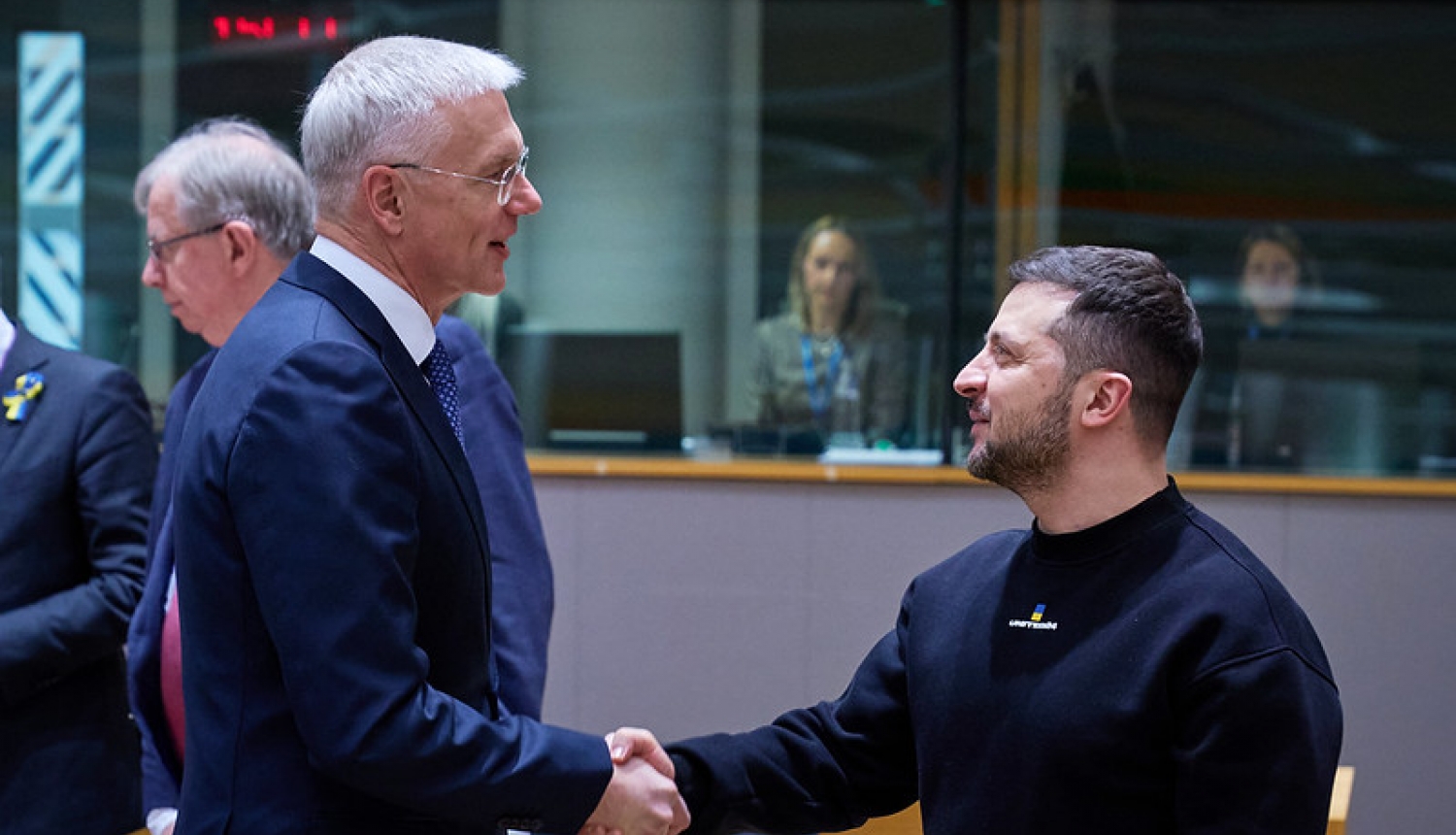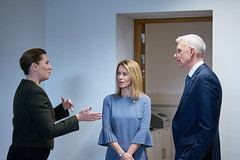Europe should further firmly support Ukraine until its victory in the war against Russia’s imperialism, Prime Minister Krišjānis Kariņš said at the European Council meeting of the EU Heads of State and Government. The EU leaders’ meeting was held on 9-10 February in Brussels (Belgium) and was also attended by the President of Ukraine Volodymyr Zelenskyy.
K. Kariņš emphasized that the Western allies must not delay their military support for Ukraine at a time when Russia is concentrating military troops in Donbas. Latvia is one of the most active supporters of Ukraine. The assistance provided so far amounts to around 1 % of GDP, and it remains active. During the conversation with the President of Ukraine V. Zelenskyy, Prime Minister K. Kariņš reaffirmed Latvia’s unwavering support for Ukraine for as long as it will be necessary.
As regards Ukraine’s future EU membership, the Prime Minister pointed out that Europe must open its doors more widely for Ukraine on its path of integration in the EU.K. Kariņš welcomed Ukraine’s progress to date in the process of implementing reforms, given that they were implemented under severe war conditions. Ukraine needs to continue its efforts in order to launch the accession negotiations as soon as possible.
At the European Council meeting, the Prime Minister also strongly supported the proposal to establish an international tribunal for the investigation of crimes of the aggression by Russia. Latvia is one of the most active EU Member States insisting on a legal solution at the EU level to ensure the use of Russia’s frozen assets for Ukraine’s reconstruction.
The Heads of State and Government also discussed the EU’s economic policy for ensuring prosperity and global competitiveness of the EU in the long-term, in the light of geopolitical challenges. With regard to the EU’s response to the US Inflation Reduction Act, the Prime Minister noted that it should be carefully assessed to avoid premature steps. In addition, K. Kariņš said that it is necessary to simplify the EU fund implementation rules in order to shorten the time between decision making and project implementation.
The European Council also held a discussion on a common EU approach to migration policy, focusing on effective control of the EU external borders and EU cooperation with third countries. The Prime Minister underlined that the protection of the EU’s external borders is of particular importance at the EU level, given the situation throughout the EU border with Belarus and increasing illegal flow of migrants.





